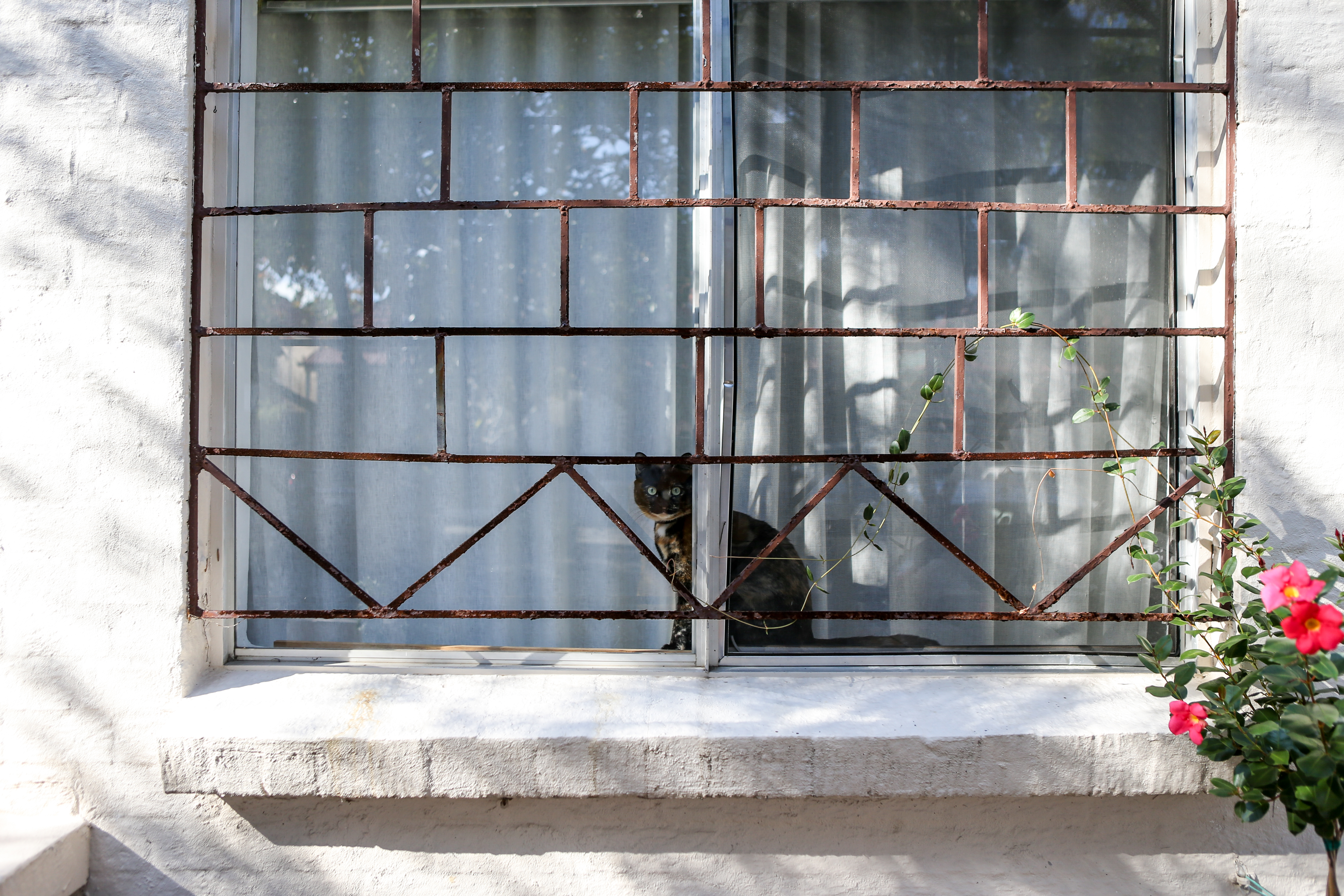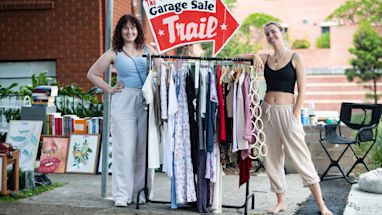Bringing a new fur baby into your home is a big responsibility and an even bigger reward. Being a considerate pet owner makes our city better for everyone. Here’s what to know if you’re the proud owner of a new dog or cat.
The first 6 months of your new puppy or kitten
Congratulations on your new ball of fluff! Enjoy this time. Keep in mind there are a few important responsibilities you’ll need to take care of over the next few months.
As soon as you get home: Time to accessorise
Get your pet some new bling with your contact details. Even the most loved pets can go missing and having an easy way to identify a pet’s owner makes it easier for our rangers to return your precious pal.
Your responsibilities: All dogs must wear a collar with your contact details when they’re out and about, and we recommend cats do as well. It’s safer that way.
You should know: If you live in the City of Sydney’s area, a free personalised collar or engraved pet tag can be all yours.
Before 12 weeks old: Get the ‘chip
Let’s face it: your furballs might decide to wander when you least expect it. A microchip gives them the best chance of a happy reunion with their loving family.
Your responsibilities: You need to microchip your pets by the time they’re 12 weeks-old.
You should know:
- The simple procedure is usually done by your local vet or animal welfare organisation.
- Breeders or rescue organisations must microchip your pet before it comes home to you. Make sure they transfer the microchip to your name.
- We offer free microchipping for City of Sydney residents who hold a pension, healthcare or concession card. Email pets@cityofsydney.nsw.gov.au for more information.
See a step-by-step guide to microchipping your animal.
By 12 weeks old: Registered and ready to roll
You’ve done well so far! The next step is to give us all the details of your beloved little one.
Your responsibilities:
- All dogs and cats must be registered by 12 weeks old.
- If you move to a new address or your pet gets a new owner, registration details need to be updated within 14 days of the microchip details changing.
You should know:
- You can register your pet online through the NSW Pet Registry, at one of our customer service centres or by email, after your pet is microchipped.
- On the spot fines of $330 can apply if you have an unregistered pet over 12 weeks-old or $1320 if it’s a restricted or dangerous dog breed.
Get more information about registering your pet. - It costs $78 to register a puppy before it is 12 weeks old. There’s an additional fee of $184 if you don’t desex your puppy by 6 months of age.
- It costs $68 to register a kitten before it is 12 weeks old. There is an annual permit fee of $96 if you don’t desex your kitten by 4 months of age.
“For decades I have advocated for changes to improve the welfare of companion animals. I believe pets are critical to the wellbeing of many people, particularly those who live alone. As more people adopt pets and density increases, it is more important than ever that people are fully aware of their responsibilities.” - Lord Mayor of Sydney, Clover Moore AO.
At 4 to 6 months old: Get the snip
It might be a touchy subject for Rex or Cleo, but it’s in your pet’s best interest to be desexed. Desexed pets live longer, healthier lives and are less likely to wander and fight. Desexing also prevents unwanted litters.
Your responsibilities: It’s not a legal requirement for all pets to be desexed, but we strongly encourage it if you’re not planning on becoming a registered breeder.
You should know:
- It costs less to register a desexed pet. To get the registration discount, cats must be desexed before they’re 4 months-old and dogs before they’re 6 months-old. We can help with cheaper desexing for pension and health care cardholders. Get more information about registration fees.
- Desexing can be done by your local vet, the RSPCA or the Cat Protection Society.
- If your vet has recommended that your pet should wait until it is older to be desexed, make sure that your vet updates the microchip details or provides you with a late desexing recommendation letter to help with the registration process.
See more details about desexing your pet.

Life at home with your canine companion
There are a few extra things to know if you get a new pooch.

Take the lead: It’s the law
Dogs must be kept on a leash in all public places, except designated off-leash parks.
This helps keep your dog safe from running onto the road or being separated from you. You can be fined $330 for having your dog off the leash in a public place.
There’s space for Fido to roam off-leash
Get ready to run! We have more than 45 off-leash areas in our local area. Check the signs near the main park entrances as some spaces are off-leash at certain times.
You must have effective control of your dog when it’s off the leash. Your dog should respond to your commands and not disturb or threaten other people or animals.
Pee-yew: Pick up after your dog
It’s not just pats and plays: being a responsible pet owner means taking on the dirty jobs. You must pick up your dog's waste in public areas, including off-leash parks. While we do provide bags in off-leash parks and popular dog-walking parks, it’s a good idea to carry your own. Rangers can issue on-the-spot fines of up to $275 if you don’t pick up your dog’s waste.
Know where your dog can’t go
Dogs aren’t allowed in some public places including:
- children’s play areas
- food preparation areas
- signposted recreation areas such as sporting fields
- schools
- childcare centres
In our area, you must also keep pets away from bush regeneration and biodiversity areas, such as low bush areas at Prince Alfred Park and along Glebe Foreshore, and Sydney Park wetlands. These protected areas provide habitat for insects, reptiles, small birds and waterbirds.

A cat in Erskineville. Photo: Katherine Griffiths
Keeping your cat safe
Despite what your moggy tells you, life is better for indoor kitties. We strongly encourage you to keep cats inside, especially overnight. Free roaming cats face many dangers, such as being run over by a car or being attacked by dogs. They can also endanger local wildlife. To keep your feline friends happy, you can buy or make a cat enclosure in your backyard or balcony. Or consider scratching posts, climbing frames or dare we say it... another cat pal.
Adopt a new friend
If you’re looking to add another furry friend to your family, consider adopting a pet from our animal shelter. Shelters across Sydney are at capacity, and we have many beautiful cats and dogs looking for love at Sutherland Shire Council Animal Shelter. The shelter is operated in partnership with the City of Sydney.
See more pet and animal services.
Published 19 April 2024, updated 22 July 2024



